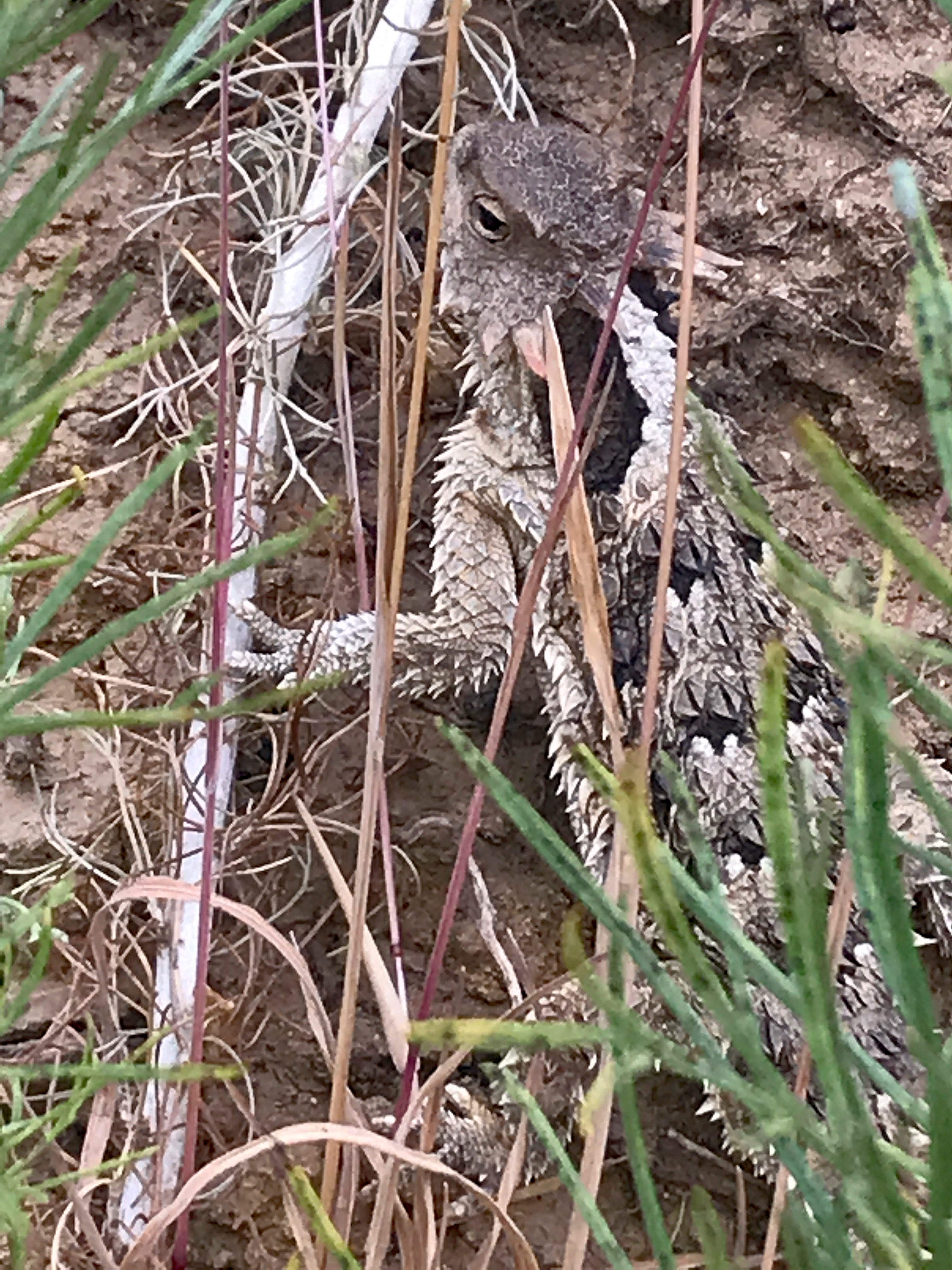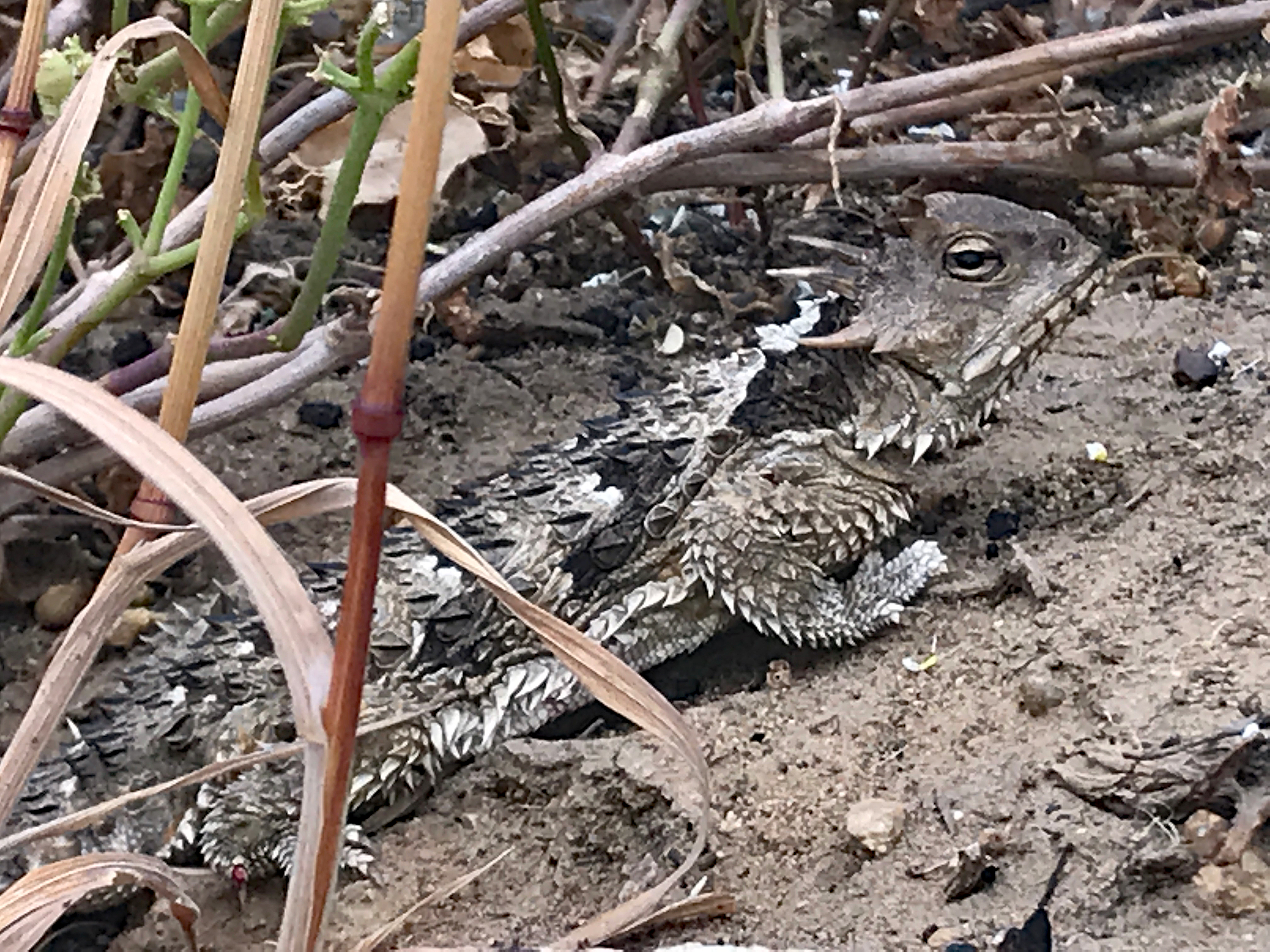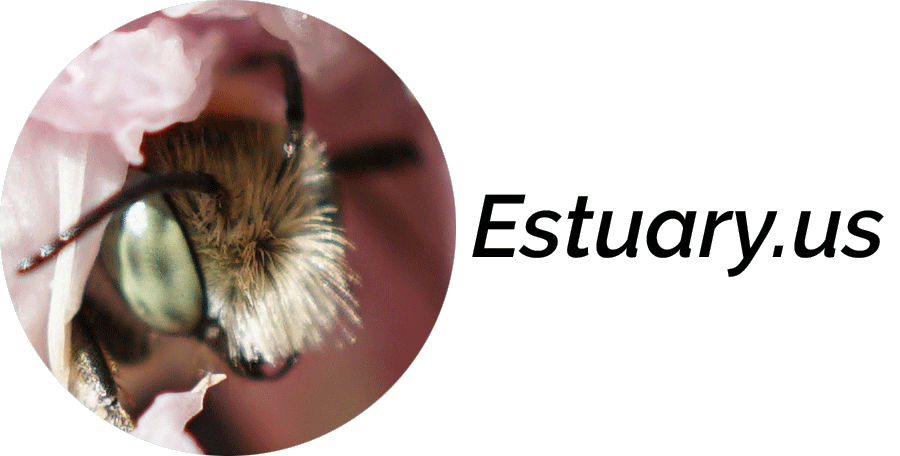Last Saturday my sister Roxanne and I hiked a loop on trails in the Lang Ranch and Woodridge open space. As has become my habit, I took photos of wildflowers. While walking down the Meadow Vista trail, my sister heard a rustling sound and turned to spot an unusual creature trying to hide in a sparse section of branches and grass along the inner side of the trail. The maker of the rustling sound turned out to be a horned lizard.
While a couple other species of horned lizards are native to California, their ranges do not appear to overlap. What my sister spotted was a Blainville’s or Coast Horned Lizard (Phrynosoma blainvillii). In this case, aside from range information, identification is all about the lizard’s fringe scales, the number of rows and how pointed they are.
The lizard was attempting to get away from us, of course, by climbing a steep embankment which it succeeded in scaling after a few tries, but not before I took some photos. Now that is camouflage!
The primary food source of the Blainville’s Horned Lizard is the native Harvester ant, supplemented by other insects. Both of these species have evolved to live in an arid Mediterranean climate such as the one we enjoy in coastal southern California.
The decline of the Harvester ant population is due in part to the successful invasion (circa 1907 in California) and continued expansion of the non-native Argentine ant into the Harvester’s habitat. The two ant species are very different but the details of their differences are for a future post. The broad bush takeaway is that the Harvester’s presence contributes to and supports the ecosystem we rely on while the Argentine weakens it. (The Argentine ant is also the one that invades your house at certain times of the year.)
The Harvester’s decline is one of the causes of the Blainville’s Horned Lizard own decline in its range. Habitat loss due to agriculture and development has also contributed to a drop in numbers across the lizard’s range.
The California Department of Fish and Wildlife lists the Blainville’s Horned Lizard as a California Species of Special Concern.




